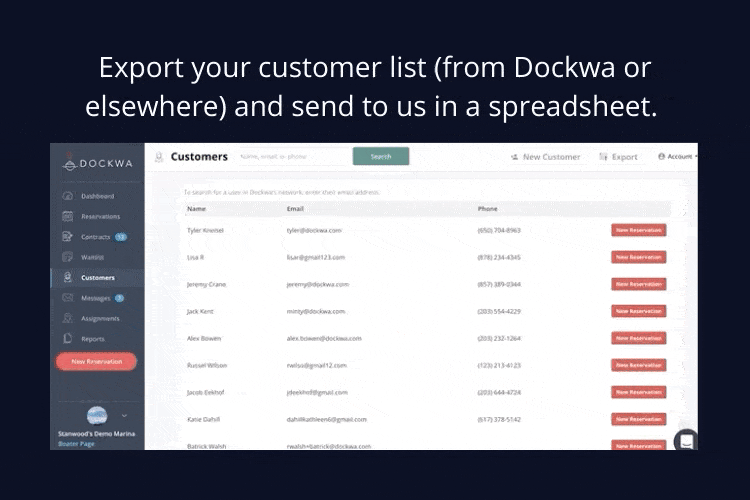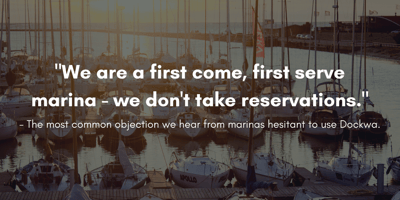Unless you live under a breakwater, you've seen stories of nationwide PPE shortages. Consider the Good Samaritan law now extended to land:...
How to Claim Your Marina's COVID-19 Donation as a Charitable Deduction
Post by Becky at Dockwa - Published on 04/08/20 18:02 PM
.png)
.png?width=1200&name=Dockwa%20_%20Marina%20_%20blog%20header%20_%20virtual%20events%20(6).png)
If you itemize deductions on your federal tax return, you may be entitled to claim a charitable deduction for your COVID-19 donations.
Learn what and how your marina should donate to local medical facilities.
Which organizations are qualified to receive deductible charitable contributions?
-
Nonprofit hospitals, schools, and volunteer fire departments.
-
Charities like Goodwill, United Way, Salvation Army, Red Cross, CARE, Boy/Girl Scouts, and Boys & Girls Clubs of America.
-
Churches, mosques, synagogues, temples, and other religious organizations.
What types of contributions can your marina deduct?
According to the Internal Revenue Service (IRS), a taxpayer can deduct the fair market value of clothing, household goods, used furniture, shoes, books and so forth.
How much you can deduct?
Fair market value is the price a willing buyer would pay for them. Value usually depends on the condition of the item. By law, a charity cannot tell you what your donated items are worth. This is something you must do yourself.
What records should your marina keep?
This varies depending on whether you've donated cash or non-cash contributions. For Non-cash Contributions. Records of your non-cash contributions generally require:
-
Non-cash contributions of less than $250 in value require a receipt or other written communication from the charity, unless it is impractical to get one (for example, leaving property at a charity’s unattended drop site). You should, however, keep your own records that include the date, description, cost, fair market value of the property, and name of the charity.
-
Non-cash contributions of at Least $250, but not more than $500 in value must have a written acknowledgement that lists the description, amount, date, and name of the donation. The acknowledgement must also describe or give a good faith estimate of any goods or services received as a result of your donation. Intangible religious benefits do not require a description or good faith estimate.
-
Non-cash contributions over $500 but not more than $5,000 in value have more requirements. In addition to the written acknowledgements previously described for non-cash contributions. Your records must also include how you obtained the property, the approximate date you obtained the property, and your purchase cost of any property that you’ve owned for less than 12 months.
-
Non-cash contributions over $5,000 in value must meet all of the requirements for non-cash contributions previously listed, and typically require a qualified written appraisal of the donated property from a qualified appraiser.
Source: Credit Karma
Large Donations
If your marina is claiming more than $5,000 in contribution value, there is a section labeled “Donee Acknowledgement” in Section B, Part IV of IRS Form 8283 that must be completed – the form and instructions can be found here: IRS Tax Forms.
Note:
-
A member of the hospital/medical facility management staff must verify that the donation receipts match the completed form and fill in the date of donation/s in this section.
-
The hospital's name, address and identification number, must be completed.
- Management staff must also provide their signature, title, and the signature date. Finally, a copy of completed Form/s 8283 should be forwarded to the hospital's Merchandise Analyst.
IRS Forms and Instructions
-
IRS Tax Form 8283 is used to report information about noncash charitable contributions.
-
IRS Tax Form 8282 is used to report information to the IRS and donors about dispositions of certain charitable deduction property made within 3 years after the donor contributed the property.
-
Comprehensive information on these topics is available from the IRS:



.png?height=200&name=Dockwa%20_%20Marina%20_%20blog%20header%20_%20virtual%20events%20(1).png)

